NIMS Marks 25th Anniversary Achievement with Smart Solutions Launch
The organization’s new Smart Solutions are an initiative to address the competencies needed by today’s technology-driven manufacturers.
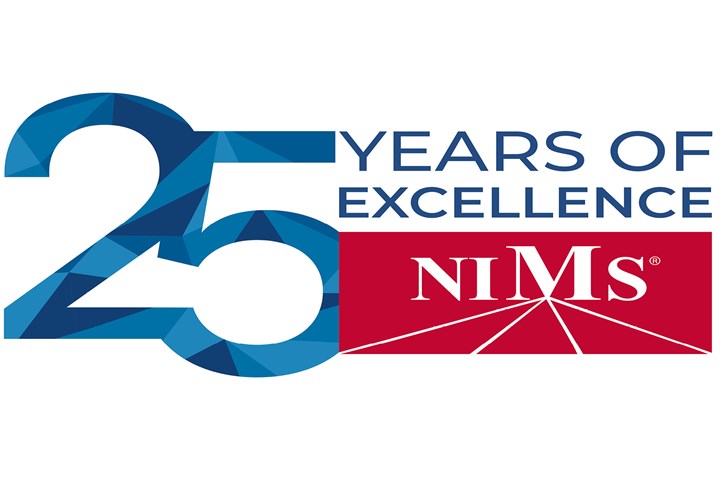
Photo Credit: NIMS
The National Institute for Metalworking Skills (NIMS; Fairfax, Virginia) celebrated its 25th anniversary in July. Established in 1995, the organization says it is marking this achievement with fresh, forward-thinking methodologies for skills training, performance validation and credentialing that address the competencies needed by today’s technology-driven manufacturers.
“Manufacturing operations have automation and digital systems in place today that weren’t even concepts 25 years ago,” says Montez King, executive director of NIMS. “As such, the skills required and the ways in which those skills are taught and measured are changing as well, both on the job and at educational institutions. NIMS is positioned, after 25 years in industry and career and technical education, to be at the forefront of this effort.”
NIMS was initially founded as a non-profit organization with the mission to develop and maintain a globally competitive American workforce. Since then, the organization says, it has become the industry standard for skills training, validation and credentialing, providing now more than 60 portable credentials in specific technical areas. Further, NIMS notes that it is instrumental in developing industry standards that NIMS credentialing candidates are tested against, giving employers confidence in end-performance of any potential employee with a NIMS-validated credential. In keeping with the revolutionary, “smart” digital transformation occurring in industry with its new advanced technology roles for employees, NIMS contends that it has kept pace with this rapid change by revamping its mission’s approach. The organization has also developed Smart Standards, Smart Training Principles and Smart Performance Measures as the three main pillars of its framework.
According to NIMS, Smart Standards are highly customized, while also being standardized and recognized by industry. They are said to enable proper training for employees in manufacturing where technology is developing and changing faster than an average individual can master in their career span. Further, they are said to reveal job roles and adapt to ever-changing technology and workforce requirements.
Smart Training Principles, NIMS says, are the guiding parameters to establish a quality, highly customized on-the-job training program that reveals true performance validation and a praiseworthy investment return for companies. Smart Performance Measures properly define, validate and benchmark employee performance, along with the communication mechanisms needed among all stakeholders in a community. They are said to measure performance of each stakeholder and reveal end performance, which provides clarity, transparency and unification of the applied learning. NIMS notes that it also offers a free evaluation survey to help employers assess their own on-the-job training programs.
According to the organization, it has launched new standards and credentials in recent months based on the new Smart Standards framework, such as Dimensional Measurement and Machining, which features new roles in CAM programing and five-axis CNC machining. Soon, the organization—partnering with Festo Corporation (Maineville, Ohio)—plans to introduce Industry 4.0 standards that will culminate in a portable credential for employees and students by the fall. Essentially, says the organization, the “new NIMS” is an Industry 4.0 network, but in the world of training and certification.
“Gone are the days of conformance to a one-size-fits-all training and workforce development paradigm. As schools and companies brought their challenges to us, we had to develop solutions, and those solutions had to align to ‘smart’ manufacturing and Industry 4.0,” says King. “With the leap in technology and its application in manufacturing, and the new initiatives at NIMS to meet those skills challenges, I’m confident we will be celebrating our 50th anniversary in 2045!”
Related Content
Five-Axis Graphite Mill With Automation Debottlenecks Electrode Machining
Five-axis electrode cutting enabled Preferred Tool to EDM complex internal screw geometry on an insert that otherwise would have had to be outsourced.
Read MoreDevelopments in High-Speed Machining Technology
There have been many exciting developments in high-speed machining relative to machining centers and controls, tooling and CAD/CAM systems.
Read MoreReimagining Moldmaking with Technology
A look at some of the technology mold builders have expressed a growing interest in and are now actively investigating, including advancements in mold design, 3D printing, automation, machining, inspection and repair.
Read MoreTechnology Roundup: New/Improved Technologies You Don't Want to Miss
With all the technology joining the market, moldmaking is a versatile, ever-evolving industry. As such, this technology roundup has no specific theme — it features a variety of products for applications and solutions across the industry.
Read MoreRead Next
NIMS Launches Industry Recognized CAM Credentials
The National Institute for Metalworking Skills (NIMS) offers standardized computer aided manufacturing (CAM) credentials, CAM milling and turning.
Read MoreHow to Use Continuing Education to Remain Competitive in Moldmaking
Continued training helps moldmakers make tooling decisions and properly use the latest cutting tool to efficiently machine high-quality molds.
Read MoreReasons to Use Fiber Lasers for Mold Cleaning
Fiber lasers offer a simplicity, speed, control and portability, minimizing mold cleaning risks.
Read More









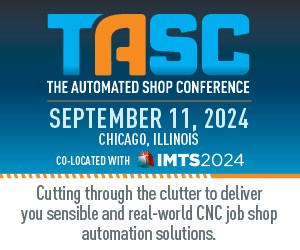









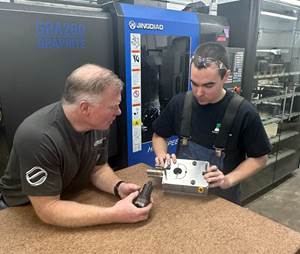
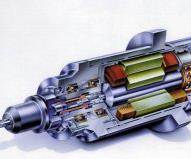
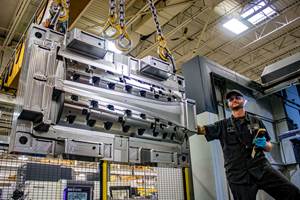
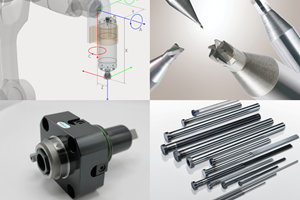
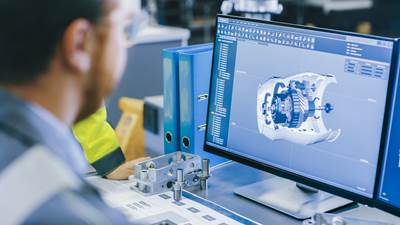


_970x250 4.png;maxWidth=970;quality=90)